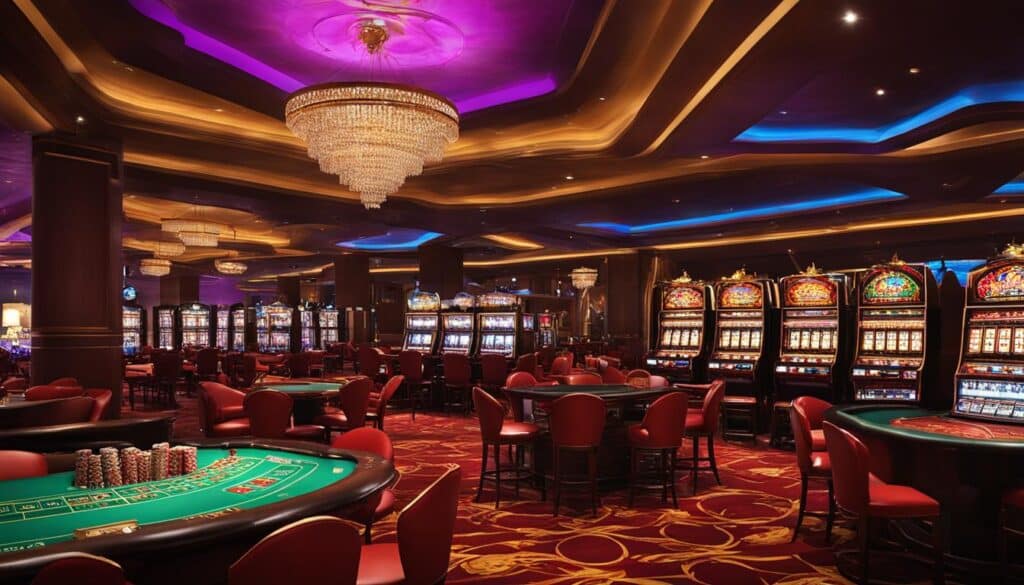
Gambling in casinos has long been a topic of fascination and controversy, attracting millions of players globally. With a mix of chance, strategy, and the excitement of risk, casino games offer an exhilarating escape from everyday life. However, as entertainment becomes ever more available, it invites a more thorough examination of the morality surrounding these games.
At the heart of the discussion lies the issue of whether casinos promote responsible gaming or take advantage of at-risk individuals. The allure of potential winnings versus the truth of losses can create a challenging dynamic, and understanding this balance is essential for both players and operators. As we delve into the morals of casino gaming, we will explore the responsibilities of casinos, the impact on society, and the measures that can be taken to foster a better gaming environment.
The Impact of Casino Gaming on Society
Casino gaming has a significant influence on societal dynamics, affecting not only the financial landscape but also interpersonal dynamics and local frameworks. The income generated from casinos can lead to job creation and boost regional economies, as they provide numerous employment opportunities in multiple fields including food and beverage, entertainment, and shopping. However, while the financial benefits can be substantial, communities often struggle with the potential negative impacts that arise from increased gambling activity.
Moreover, the presence of casinos can lead to an increase in gambling addiction, presenting serious challenges for individuals and families. The thrill of casino games can quickly evolve into a compulsive habit, affecting connections with others and leading to financial instability. Many players may find it difficult with the loss of control over their gambling behaviors, resulting in a need for community support services and help to address this increasing issue. The social cost of gambling addiction can extend through families and neighborhoods, creating an urgent need for sensible gambling approaches.
In addition to the economic and social ramifications, casino gaming often showcases cultural attitudes towards uncertainty and leisure. It can encourage a sense of excitement and leisure, attracting tourists and boosting local travel. However, this allure may also mask the wider implications of gambling as a form of entertainment, provoking ethical questions about its promotion and availability. As communities weigh the benefits and drawbacks of casino gaming, the need for responsible practices and oversight becomes increasingly critical in ensuring that the beneficial elements are maximized while minimizing the negative effects.
Ethical Concerns in Gambling Activities
The ethics of casino gaming often revolve around the risk for dependency and its consequences on individuals and households. Gambling can lead to significant monetary distress, impacting not only the gamblers but also their loved ones. As people become caught in the allure of winning, many lose sight of their financial limits, which can result in catastrophic results such as insolvency. This raises ethical questions about the duty of gambling establishments in promoting safe gaming practices and offering support for those who may be dealing with gambling addiction.
Another critical issue is the promotion of betting to at-risk populations. Gambling establishments often aim at low-income individuals or communities with the promise of quick gains, which can continue patterns of poverty and hopelessness. In this situation, the ethics of marketing strategies used by gambling establishments come under examination, as they may take advantage of the need of individuals seeking an way out from financial hardships. This exploitation raises ethical questions about the integrity of the betting industry and its responsibility to protect its most vulnerable customers. King88a.org
Additionally, the effect of casino gaming on society as a whole cannot be ignored. While some argue that gambling establishments create employment and stimulate local economies, others point to the community costs associated with problem betting, increased crime rates, and a burden on public resources. Balancing financial advantages with the risk for community issues presents a challenging ethical dilemma for lawmakers and gambling operators alike. The difficulty lies in finding a ethical approach that takes into account the welfare of people and society while still permitting for the pleasure of casino gaming.
Regulatory System and Obligations
The oversight structure pertaining to gaming games is designed to ensure justice, trustworthiness, and player safety. Multiple government bodies and gambling commissions create and enforce regulations that dictate how casino operations function, the guidelines for game creation, and the procedures for managing prizes. These regulations change by jurisdiction but commonly involve licensing requirements for operators and strict measures to avoid cheating and scams.
In furthermore to oversight bodies, gambling operators bear major duty in maintaining moral standards within their venues. They must enforce ethical player practices that promote gambler safety and consciousness, including presenting self-ban options and offering information about the dangers associated with gambling. Casinos are also accountable for instructing workers to identify signs of problem gambling and understand the proper steps to assist customers in trouble. King88 COM
Moreover, clarity in casino operations is vital for gaining and preserving public trust. Casinos should offer clear data about the odds of activities, promotional opportunities, and any related hazards. By promoting an atmosphere of transparency and responsibility, gambling establishments can help lessen the likelihood negative impact of gambling while boosting the complete gambling experience for all gamblers.